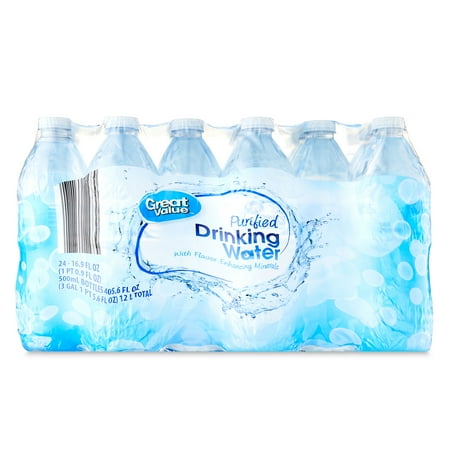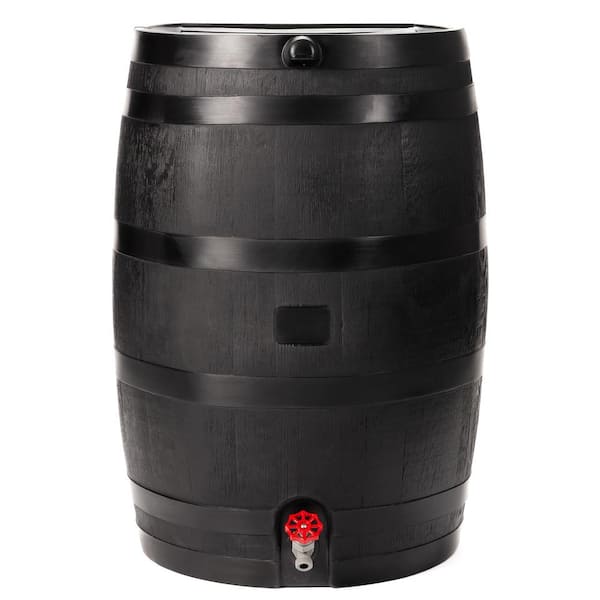How to bathe and keep your home clean when there’s a water supply outage
While it should be a worst-case scenario, it never hurts to plan ahead

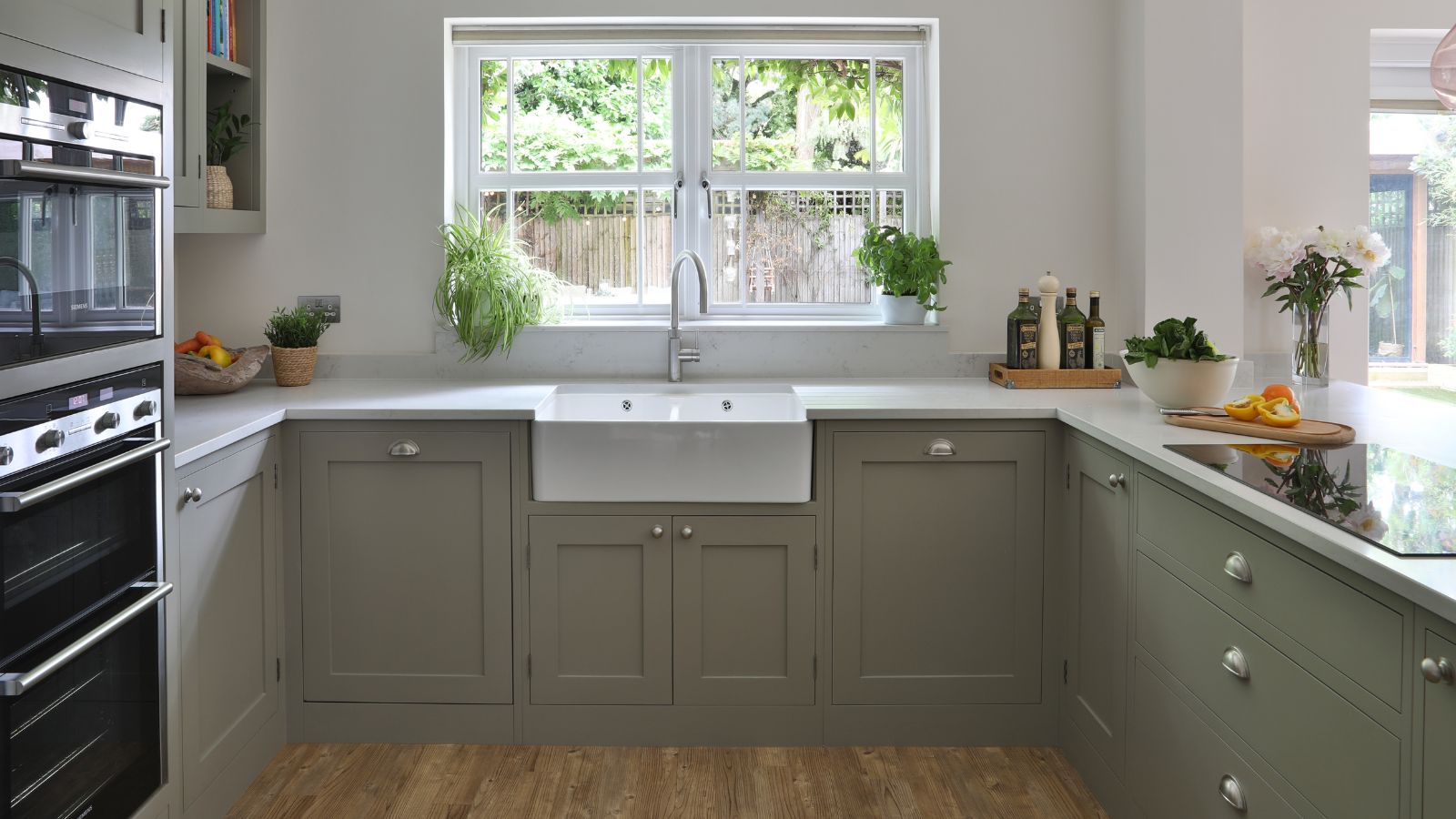
Design expertise in your inbox – from inspiring decorating ideas and beautiful celebrity homes to practical gardening advice and shopping round-ups.
You are now subscribed
Your newsletter sign-up was successful
Want to add more newsletters?

Twice a week
Homes&Gardens
The ultimate interior design resource from the world's leading experts - discover inspiring decorating ideas, color scheming know-how, garden inspiration and shopping expertise.

Once a week
In The Loop from Next In Design
Members of the Next in Design Circle will receive In the Loop, our weekly email filled with trade news, names to know and spotlight moments. Together we’re building a brighter design future.

Twice a week
Cucina
Whether you’re passionate about hosting exquisite dinners, experimenting with culinary trends, or perfecting your kitchen's design with timeless elegance and innovative functionality, this newsletter is here to inspire
Water outages are arguably a lot worse than power outages. Without power, at least you can set up a generator, or stay warm and cook using other means. However, you are a bit stuck on cleaning and bathing without water. So, how do you manage?
The trick, plumbers say, is to prepare ahead, with a series of solutions designed to keep you going – and things sanitized – in the worst-case scenario.
Here’s how our pros suggest getting by without a mains water supply whether you'll dealing with a sudden outage or preparing your home for an emergency.
How to prepare for a water supply outage like a pro
Much like preparing a home for a power cut, these steps are best followed before you are hit with a water outage, so you are not caught up in a panic and swathes of other people rushing to the store.
1. Stock up on water
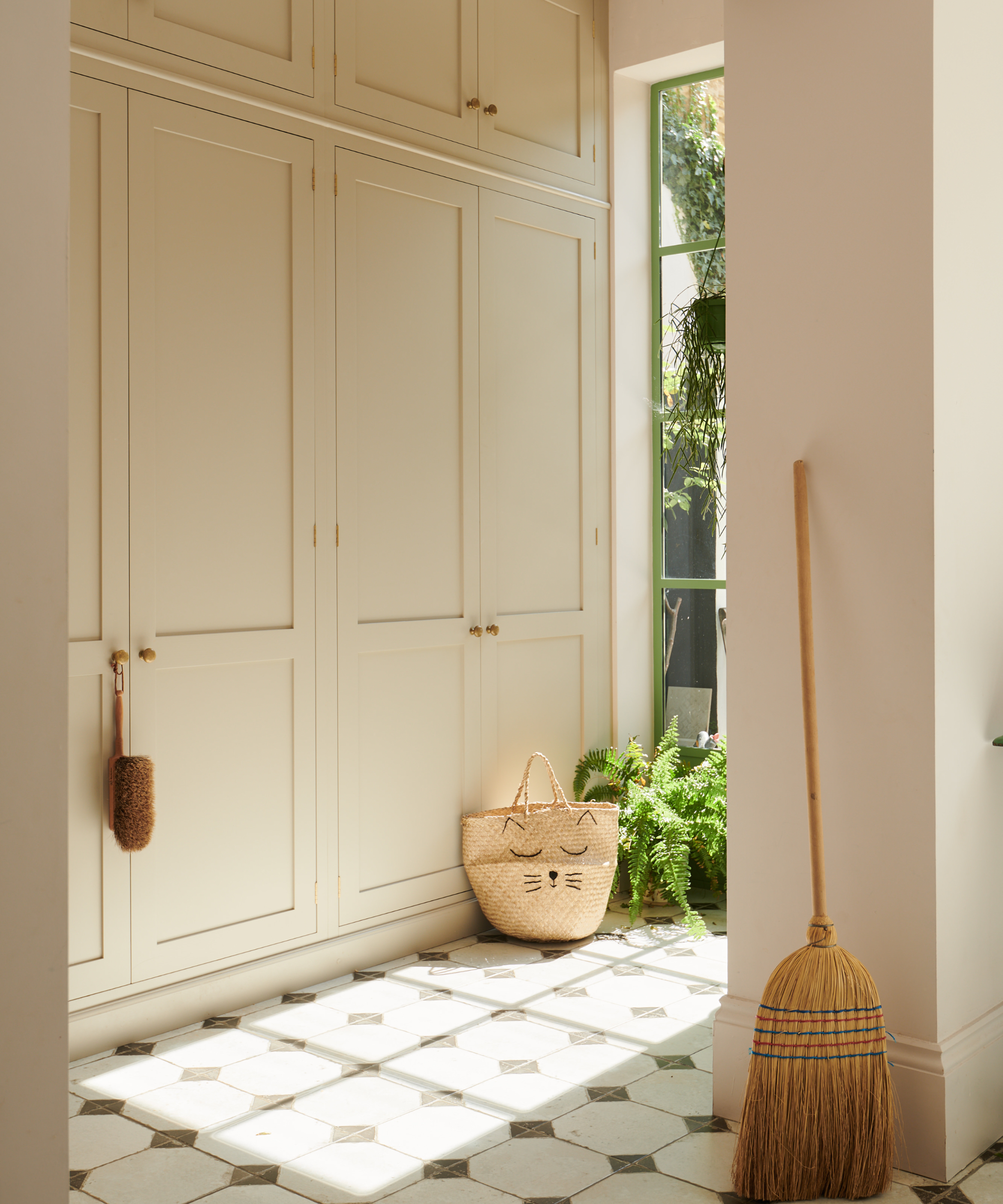
If you are expecting a water outage due to bad weather or have been alerted to water works in your area, the first thing you should do is stock up on consumable water.
Geno Cacia, master plumber and CEO of Caccia Plumbing says, ‘First and foremost, try to ensure you always have a healthy stock of water beforehand. I typically suggest around one gallon of water per person per day for say, three to four days. This water can be used for drinking, cooking, and hygiene. Of course, if you have the space in your home, you should store as much as you can.’
We have plenty of tips to organize your home after bulk buying groceries that will help you make use of all your storage ideas for emergency supplies.
Design expertise in your inbox – from inspiring decorating ideas and beautiful celebrity homes to practical gardening advice and shopping round-ups.
You should also fill up a bathtub during a storm, but be aware that this water is not for drinking. It can, however, be used for bathing and cleaning.
2. Look into recycled greywater
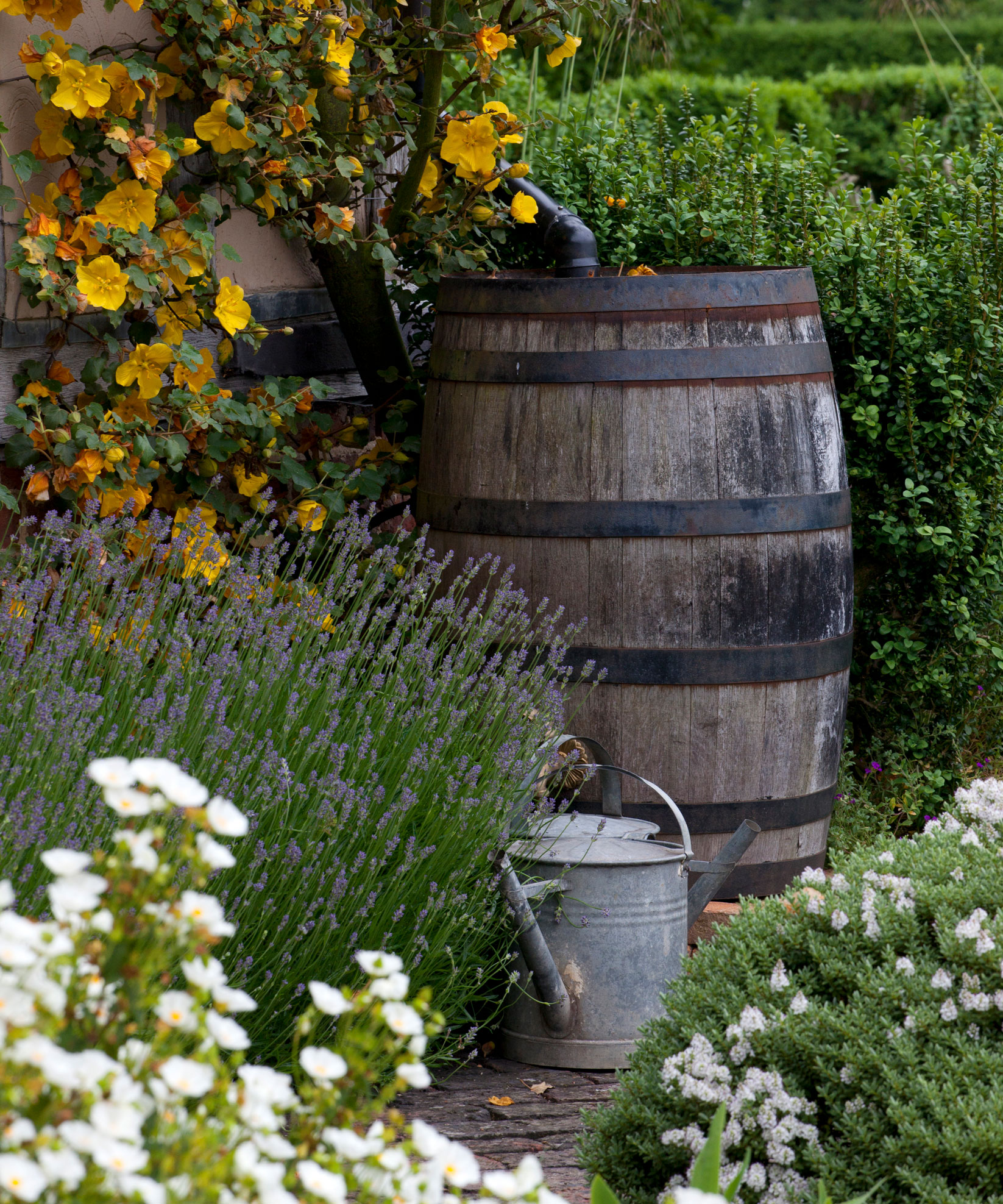
For non-consumable water, greywater is ideal, Gene continues. He explains, ‘Repurposed greywater can be extremely handy in the case of an emergency. Water stored in large outdoor rain barrels and containers can be used for flushing toilets or cleaning floors for example. Try to make sure the water isn't contaminated though, especially if using it to clean around food preparation areas.
‘Two other smart investments (and I know it may not be within budget for all) are rainwater collection systems and water storage tanks. These are very helpful as a backup water source. Portable water filtration systems [such as the Waterdrop Filter available at Amazon] will help ensure you have safe, drinkable water as well.’
3. Go water-free with cleaning
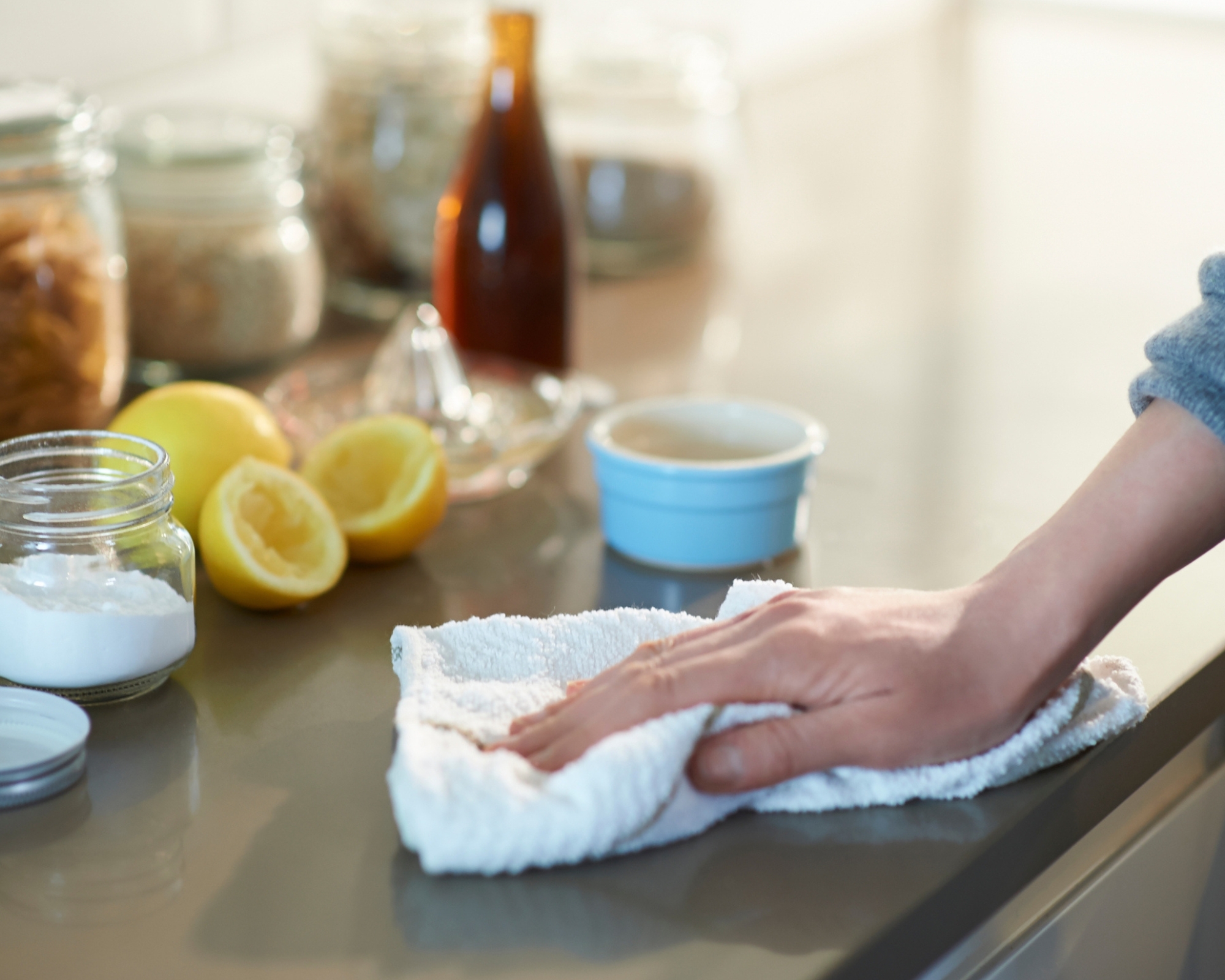
There are plenty of natural ways to fight grease and grime, and kill bacteria, without the need for any water. Glenda R. Ervin, director at Lehman’s suggests, ‘use eco-friendly supplies like cleaning with vinegar or baking soda, all of which are available at Lehman’s for a sustainable approach.’
These green cleaning approaches are usually better than soapy water in many cases, with a 2020 study concluding that white vinegar at a concentration of 10% or higher effectively kills bacteria and pathogens such as E.coli.
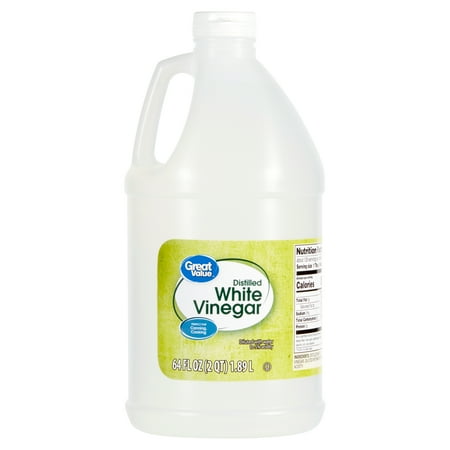
Vinegar is one of the best gentle household cleaners, helping to kill bacteria and some pathogens, as well as kill mold, all without the need for water or harsh chemicals.
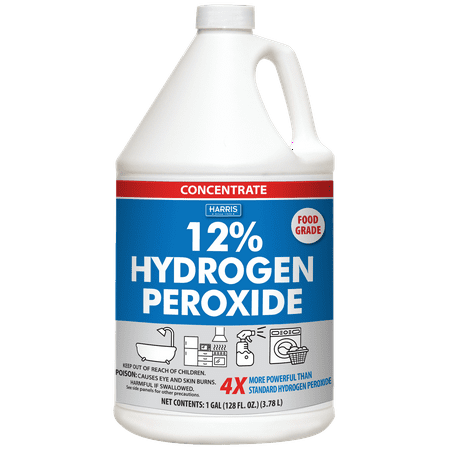
Hydrogen peroxide is another great eco-friendly cleaner, perfect for sanitizing surfaces such as kitchen counters or high-chair food trays.
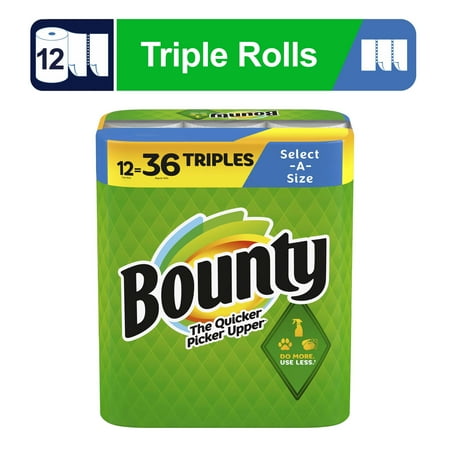
We usually recommend microfiber cloths for cleaning as they are machine washable and better for the environment. When you don't have water to wash, however, paper towels are the next best thing for hygiene.
4. Look for alternative hygiene measures

Gene Caccia says, ‘Although it’s not the same as high-end soap in a warm steam shower, wet wipes and no-rinse products are great in the event of an emergency. Of course, they are quite affordable and do not require any water. Keep a few of these in your emergency kit.’
Water wipes, from Walmart, are perfect for even the most sensitive of skin and are free from harsh chemicals and fragrances.
5. Use disposable dinnerware
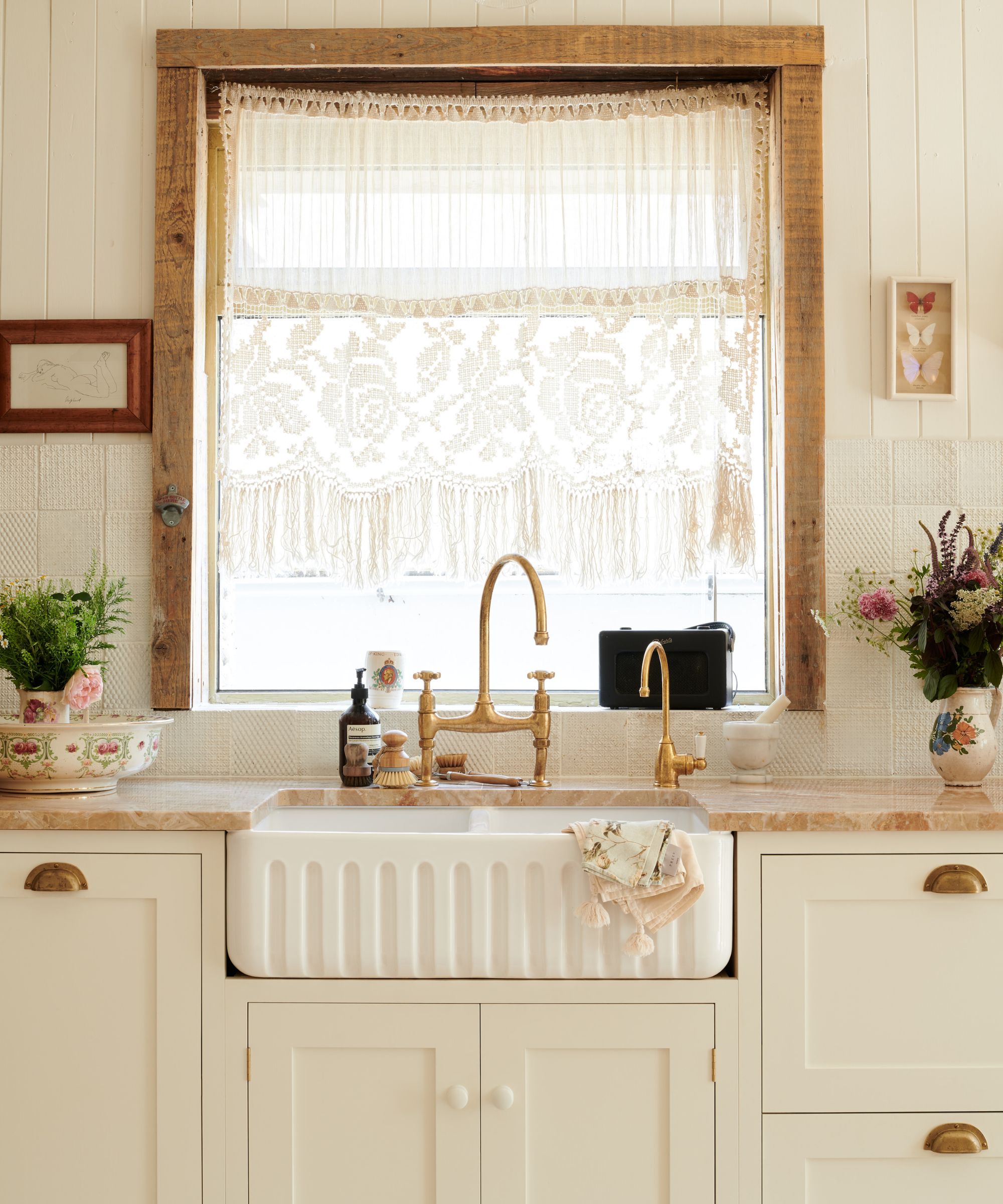
With no water, you can’t exactly load up your best dishwasher, and you will want to save what drinking water you have for hydration and cooking, rather than washing dishes by hand. While it is temporarily wasteful, it is a good idea to use disposable plates and cutlery, available in sets from Walmart, during this time to reserve your water supply.
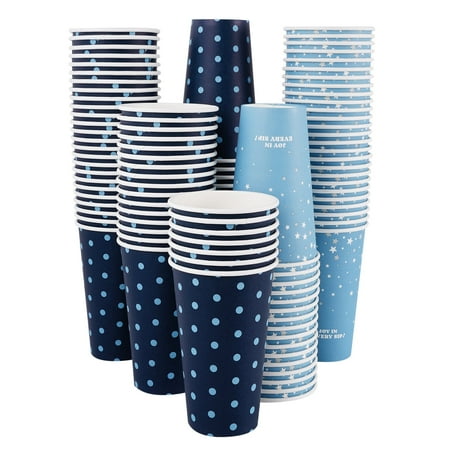
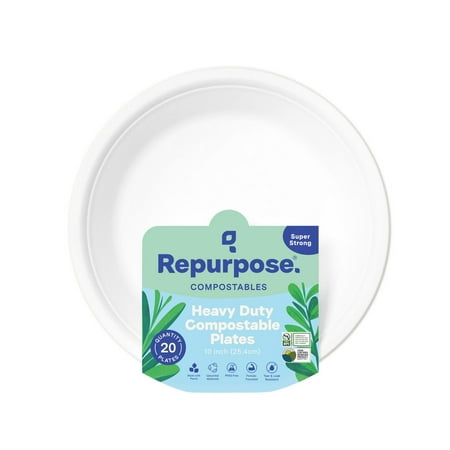
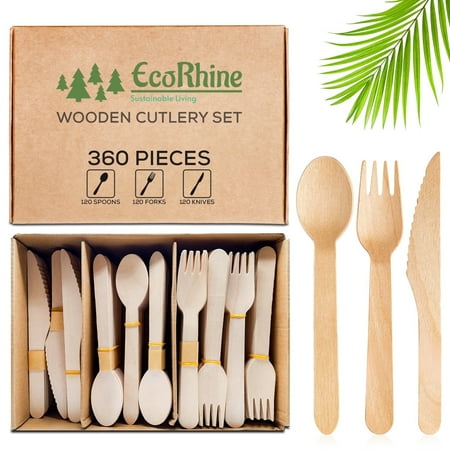
FAQs
Why have I suddenly got no water?
If your faucets suddenly stop working, it could be for several reasons. The most common reason is a closed valve or a water heater malfunction, both of which can be quickly addressed by a plumber. In winter, no water could be the result of frozen pipes that need to be thawed carefully to avoid bursts. It could also be down to a wider issue with your water supply, however, which needs to be dealt with by your water supplier.
While water outages are fairly rare, it never hurts to have a few items on hand to keep us going, especially when preparing a house for a snowstorm or preparing your house for hurricane season when water mains are more likely to be affected by adverse conditions.

Chiana is Homes & Gardens’ kitchen appliances editor. With a lifelong passion for cooking and baking, she grew up experimenting in the kitchen every weekend with her baking-extraordinaire Mom, and has developed a great understanding of how tools and appliances can make or break your ideal relaxing kitchen routine.
